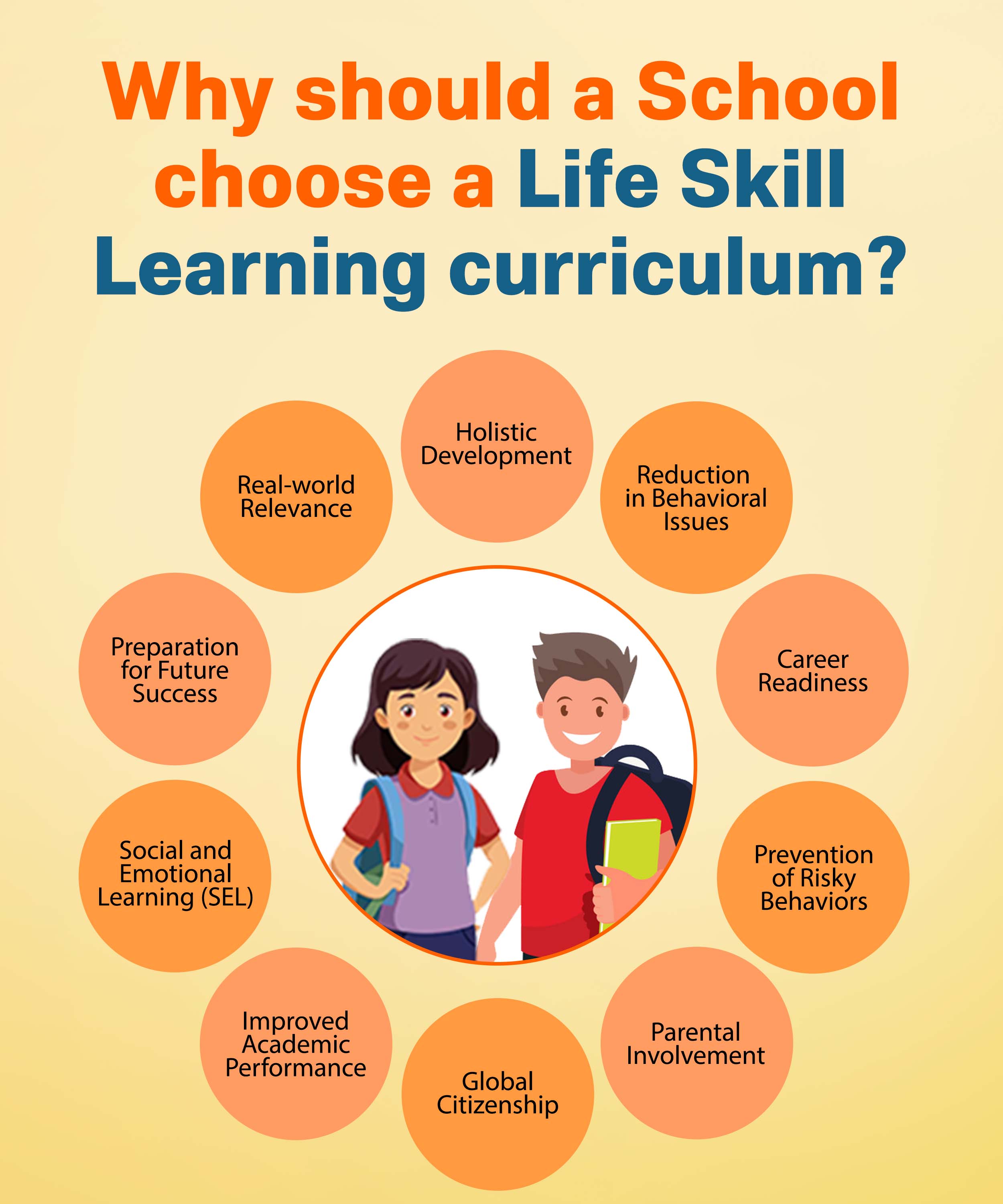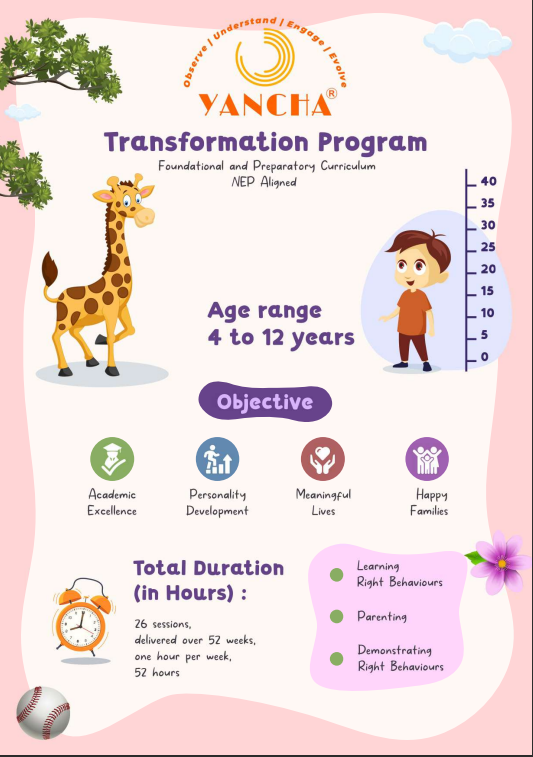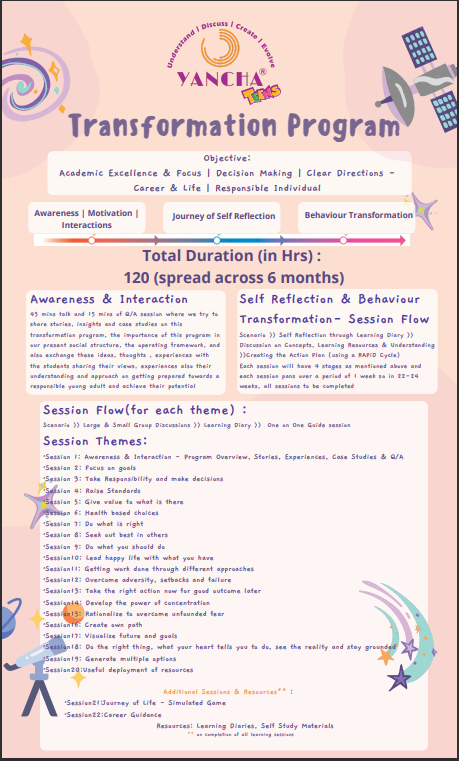
Why should a school choose a Life Skill Learning curriculum?
 School education is not just about text books and exams. For holistic development of students, they must receive proper guidance and inputs on productive behaviors, so that they can grow up to become the best version of themselves. Hence, implementing a Life Skills Learning curriculum in a school setting can offer a clutch of benefits.
School education is not just about text books and exams. For holistic development of students, they must receive proper guidance and inputs on productive behaviors, so that they can grow up to become the best version of themselves. Hence, implementing a Life Skills Learning curriculum in a school setting can offer a clutch of benefits.
So, why should a school choose a Life Skills Learning curriculum that involves research, fun and engagement, led and developed by top minds from diverse domains?
Holistic Development:
Life Skills Learning focuses on the overall development of students, including their emotional, social, and cognitive well-being. It goes beyond traditional academic subjects, addressing critical skills and issues like communication, problem-solving, decision-making and interpersonal relationships.
Real-world Relevance:
Life Skills are essential for navigating the challenges of everyday life. By integrating a Life Skills Learning curriculum, schools prepare students with practical skills they can apply in various situations, both during their academic journey and in their future careers and personal lives.
Preparation for Future Success: **Source: Future Skills to Success by WEF
Life Skills are increasingly recognized as crucial ingredients for success in the 21st century. A curriculum that includes and emphasizes these skills ensures that students are well-prepared for the demands of today’s world, fostering adaptability, critical thinking and resilience.
Social and Emotional Learning (SEL):
Life Skills Learning often includes components of Social and Emotional Learning, which are integral to promoting emotional intelligence, empathy, and positive, interpersonal relationships. These skills contribute not only to academic success, but also to one’s mental and emotional well-being.
Social and Emotional Learning (SEL):
Life Skills Learning often includes components of Social and Emotional Learning, which are integral to promoting emotional intelligence, empathy, and positive, interpersonal relationships. These skills contribute not only to academic success, but also to one’s mental and emotional well-being.
Improved Academic Performance:
Research indicates that students who participate in structured Life Skills Learning programs, tend to perform better in academics. The development of skills like time management, organization and effective study habits positively impacts students' ability to succeed academically.
Reduction in Behavioral Issues:
Life Skills Learning fosters self-awareness and self-regulation, which can reduce behavioral issues. Students equipped with effective communication and conflict-resolution skills are better equipped to navigate social situations positively.
Career Readiness:
Many Life Skills such as teamwork, communication, and problem-solving, are highly valued in the professional world. A curriculum that emphasizes these skills ensures that students are not only academically proficient, but also ready for the challenges of the workplace.
Prevention of Risky Behaviors:
Life Skills Learning programs often address topics like decision-making, peer pressure and conflict resolution, providing students with the tools to make informed choices and resist engaging in risky behaviors.
Parental Involvement:
Life Skills Learning can extend beyond the classroom, involving parents in the educational process. This collaboration between schools and families reinforces the development of life skills in a child's daily environment by creating a healthy ecosystem.
Global Citizenship:
Life Skills Learning fosters qualities like cultural awareness, tolerance and empathy, contributing to the development of responsible, inclusive global citizens who can navigate diverse and interconnected societies.
At Yancha, our Research & evidence-based Life Skills Learning curriculum enriches and complements a school's educational offering by preparing the students not just academically, but also socially, emotionally, and practically, for a successful and fulfilling future, and at the same time, creating a unique edge for the Institution.



